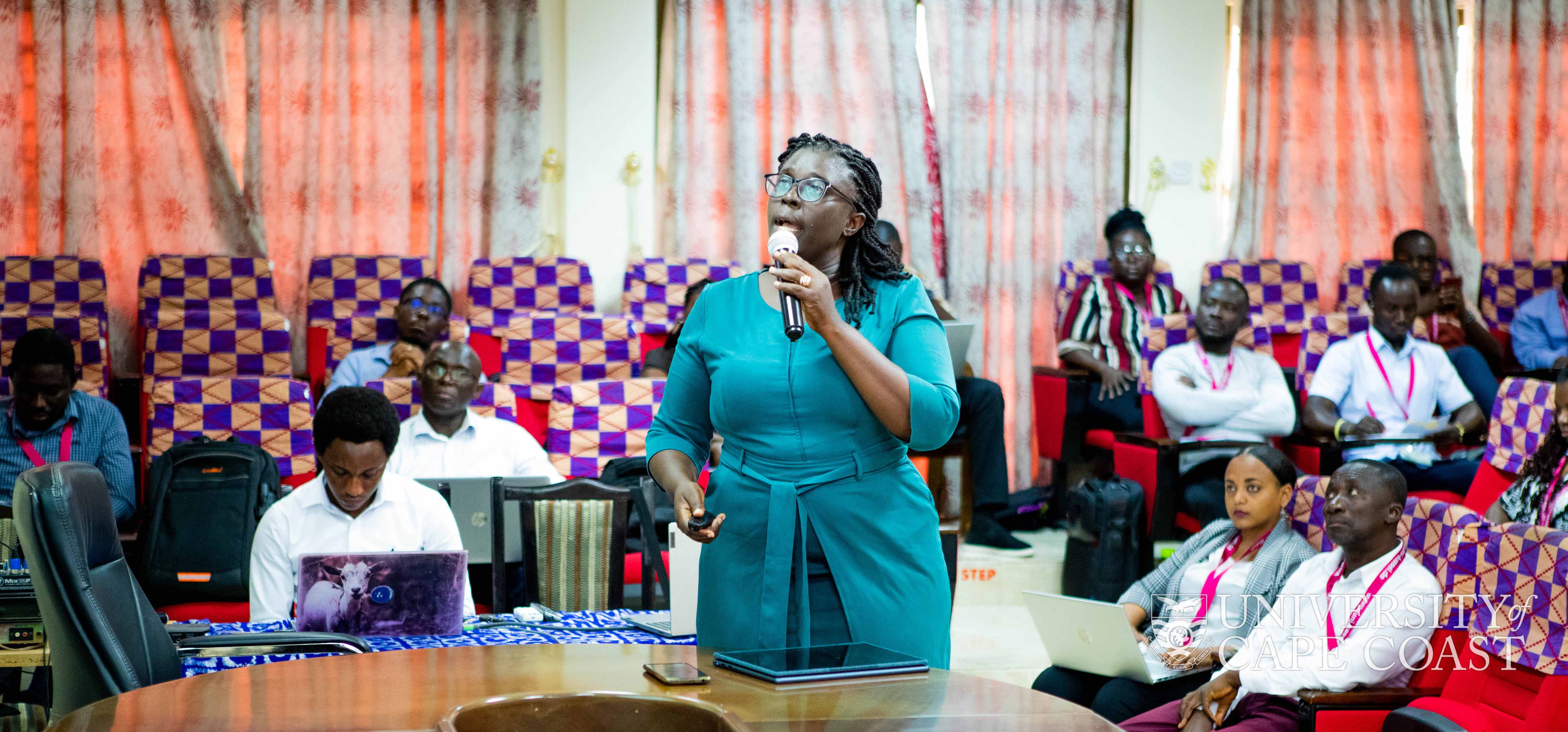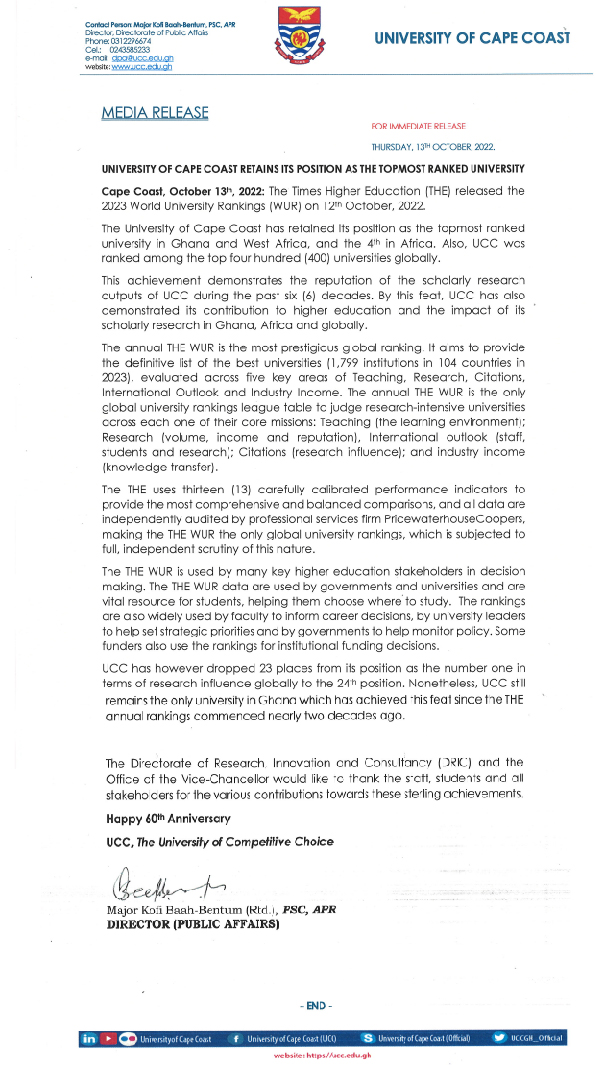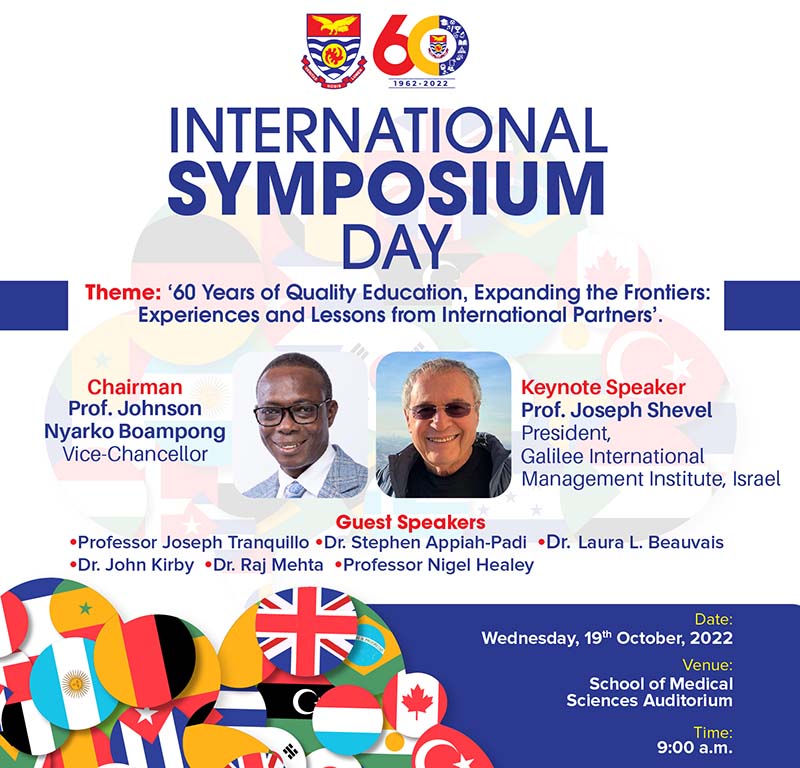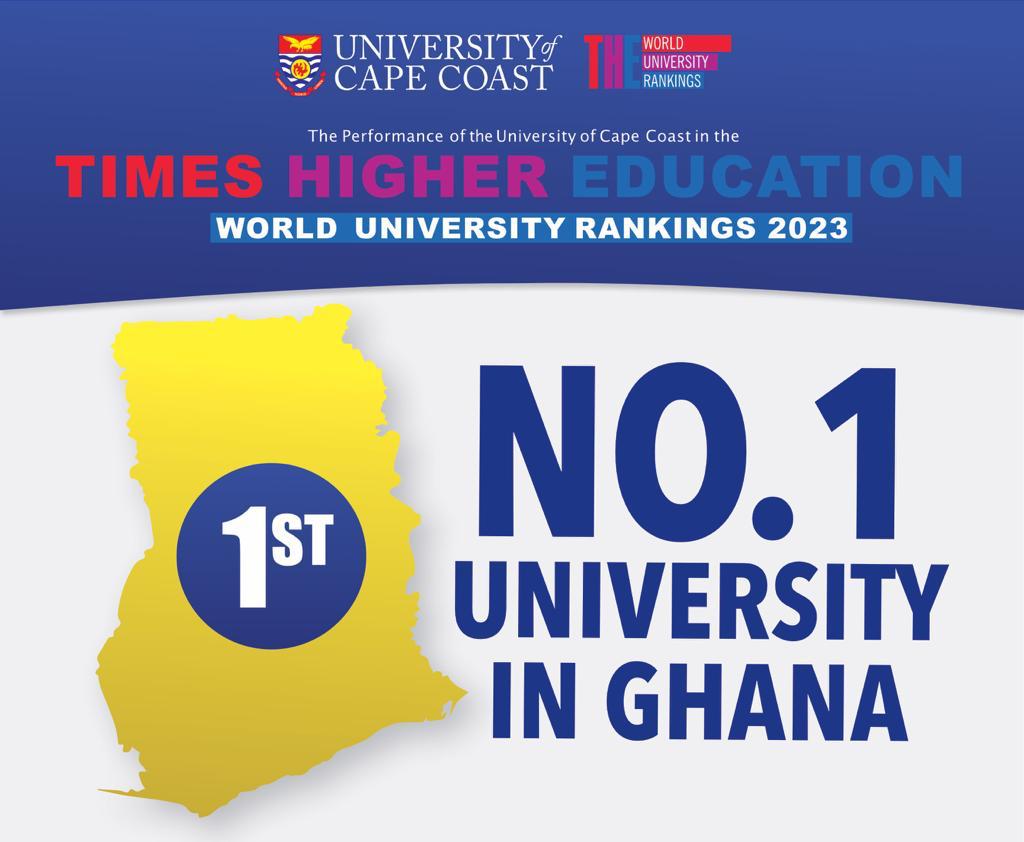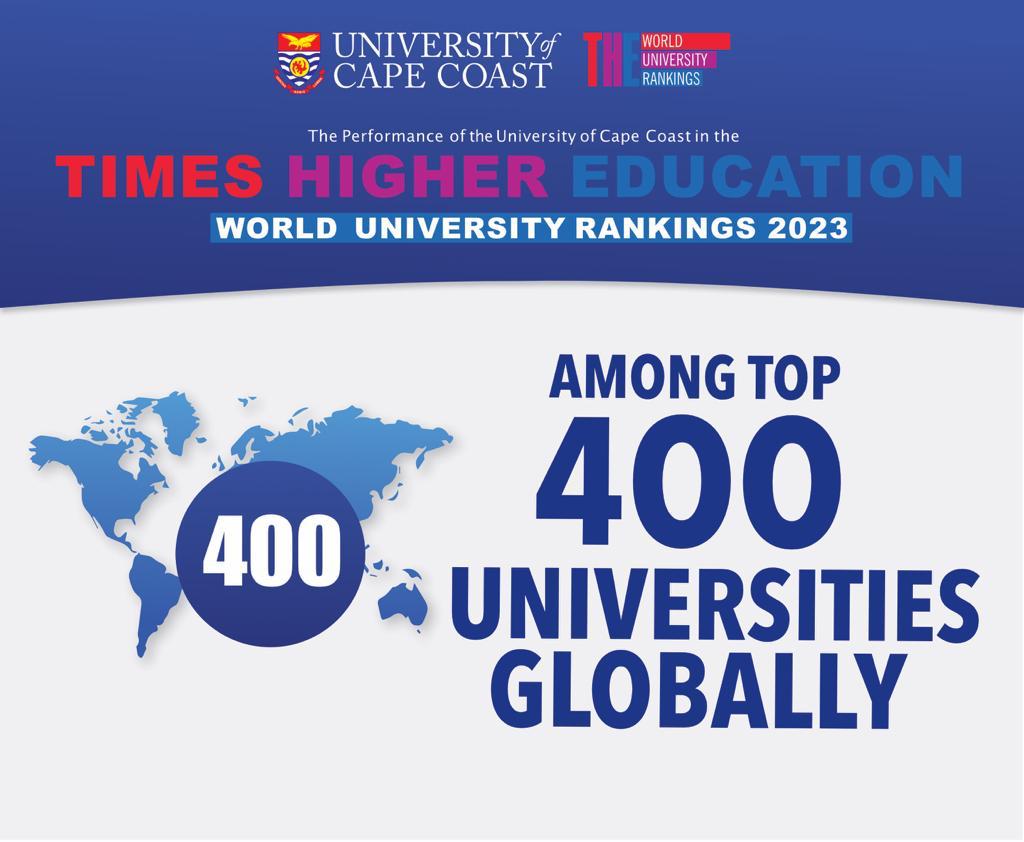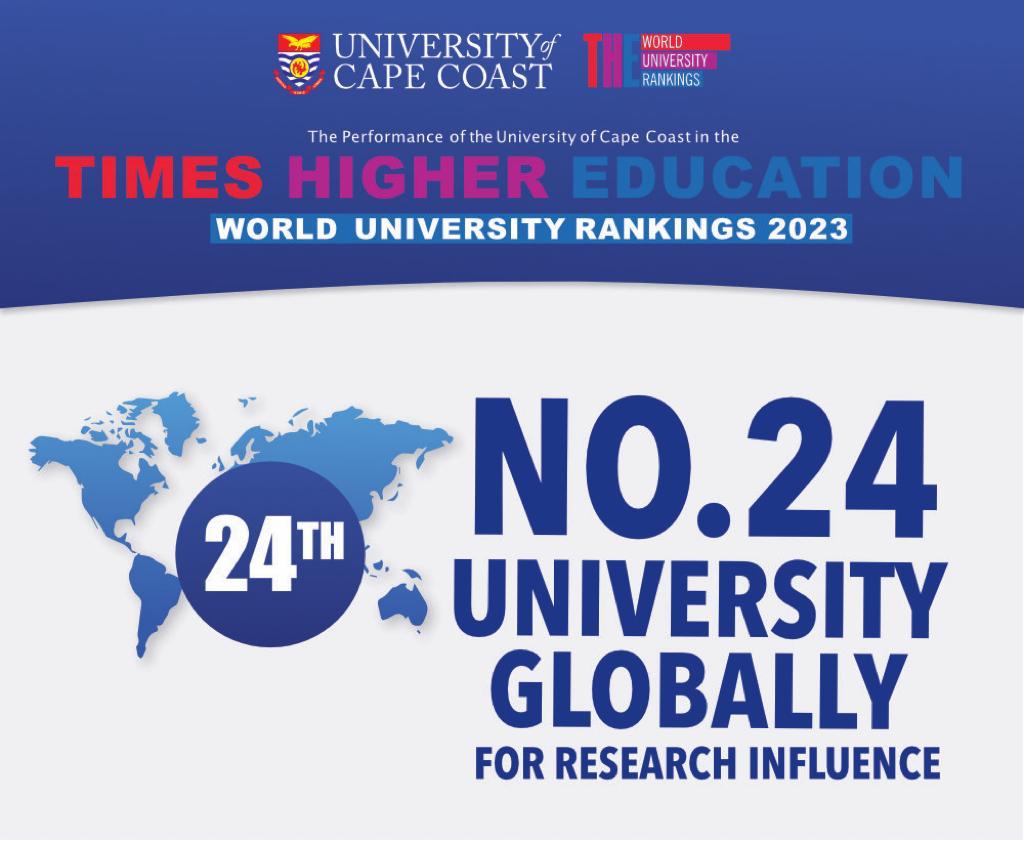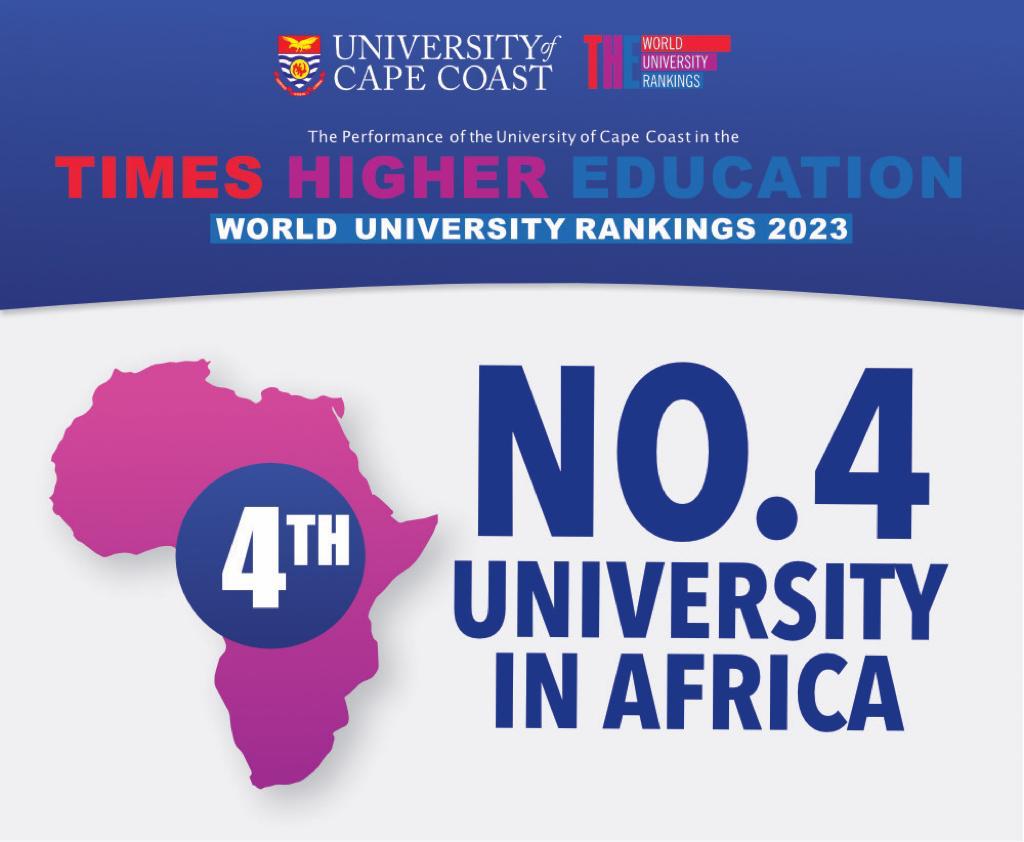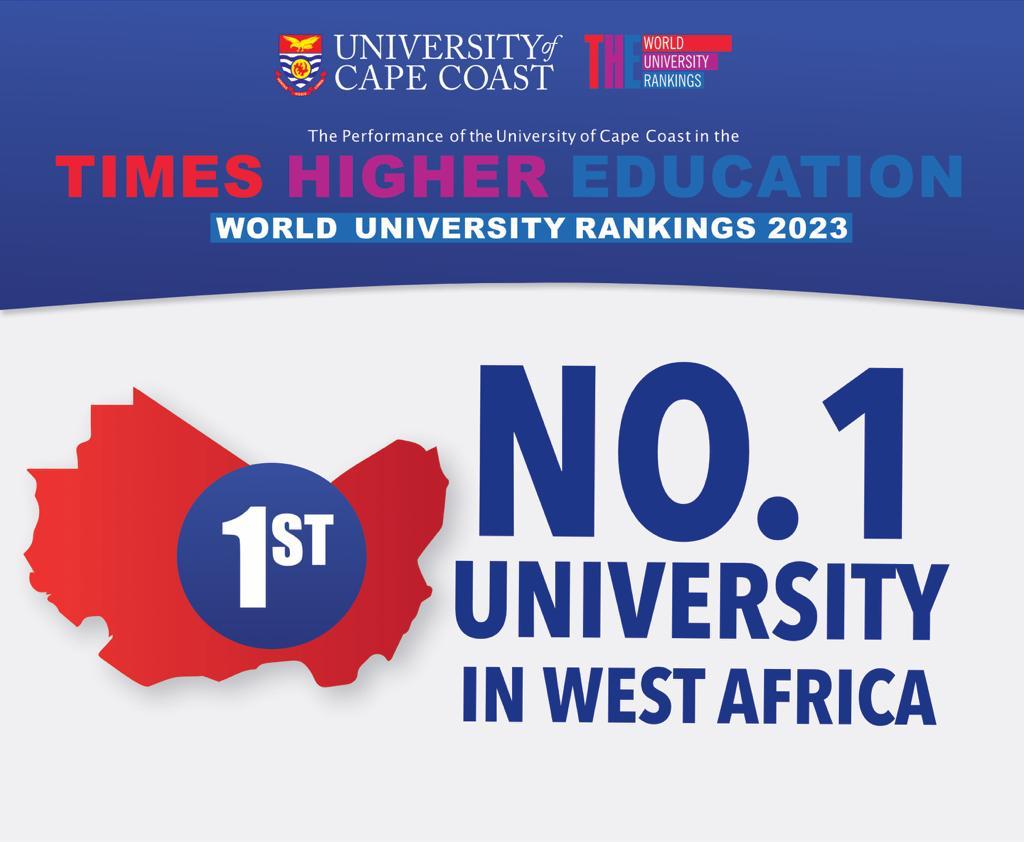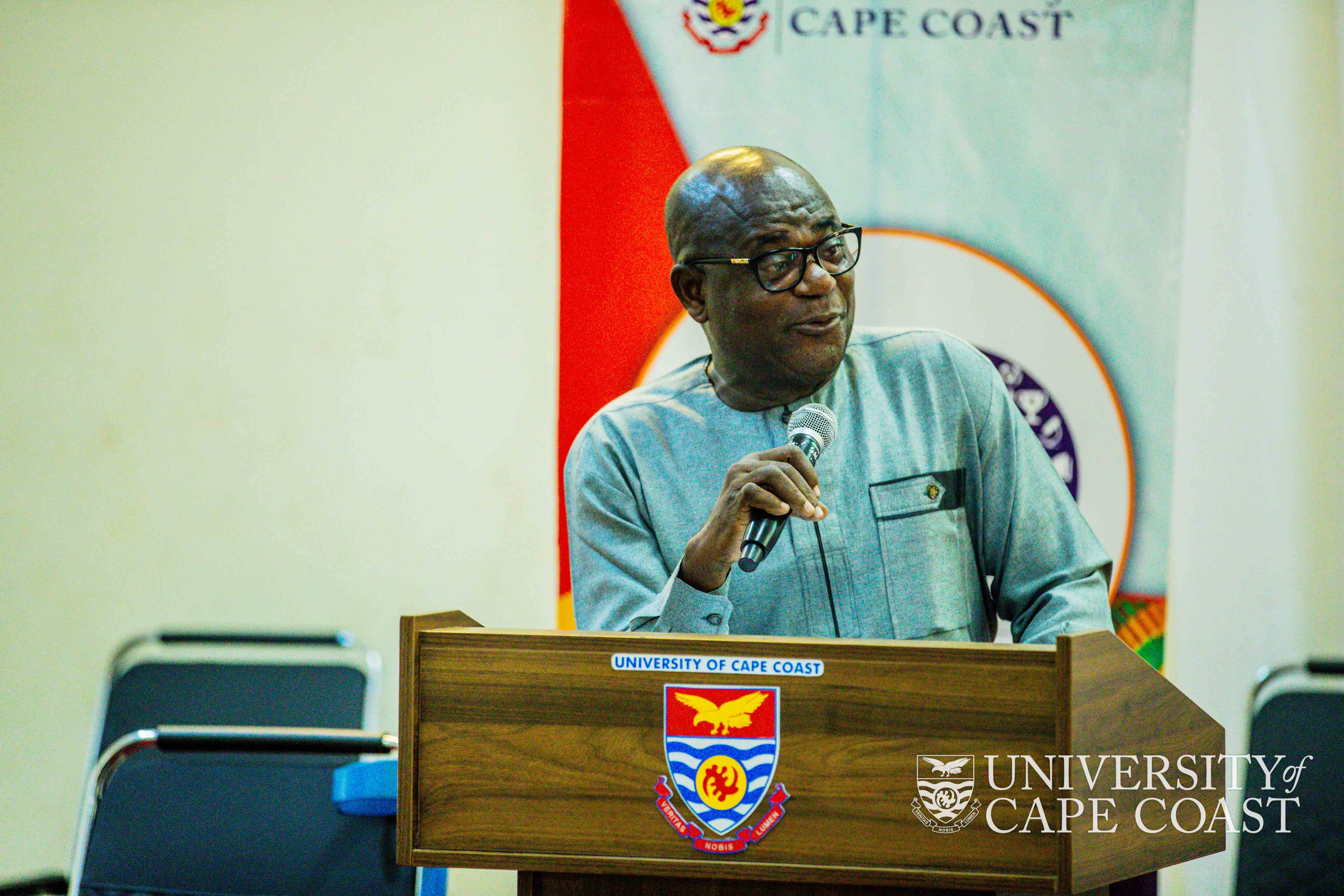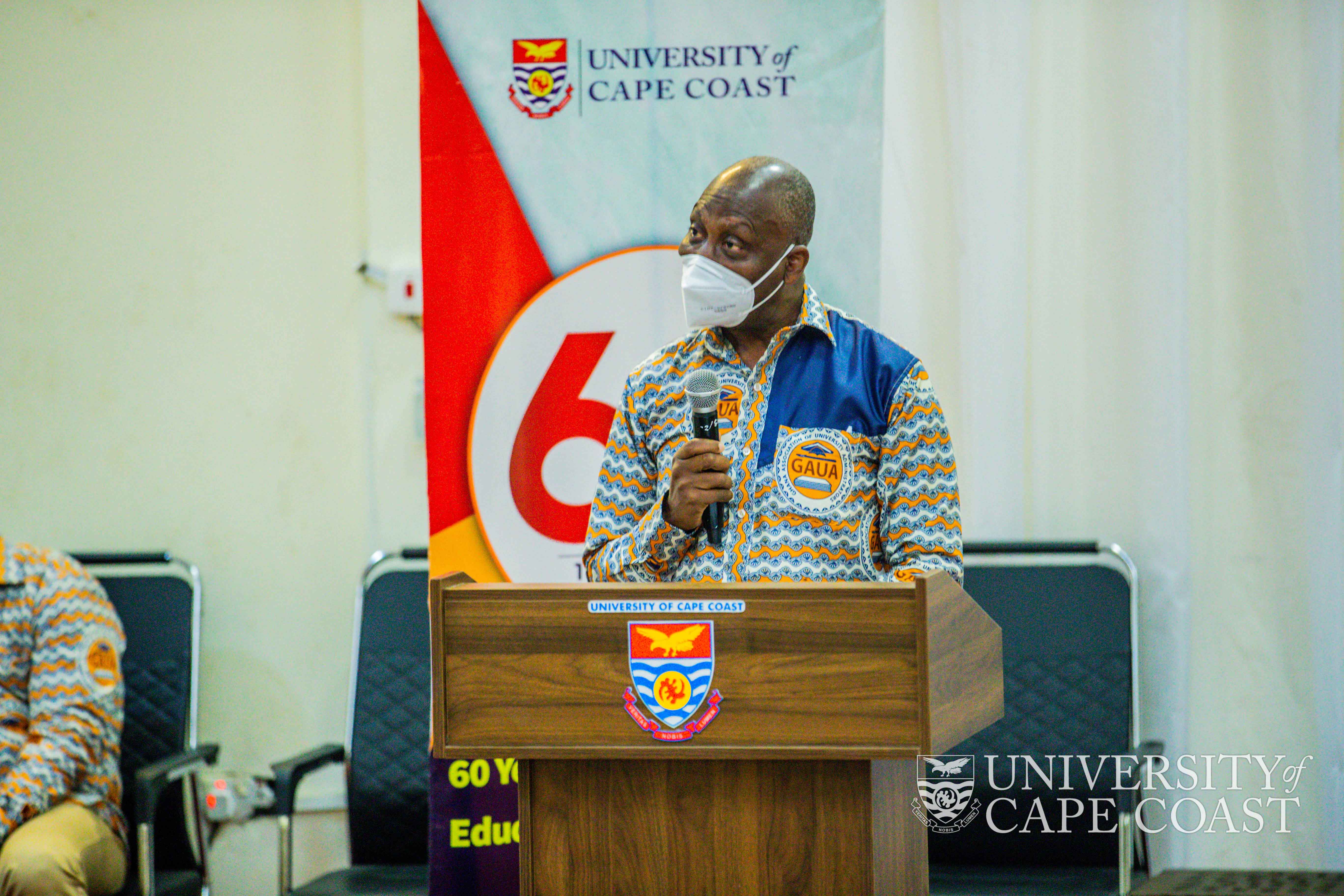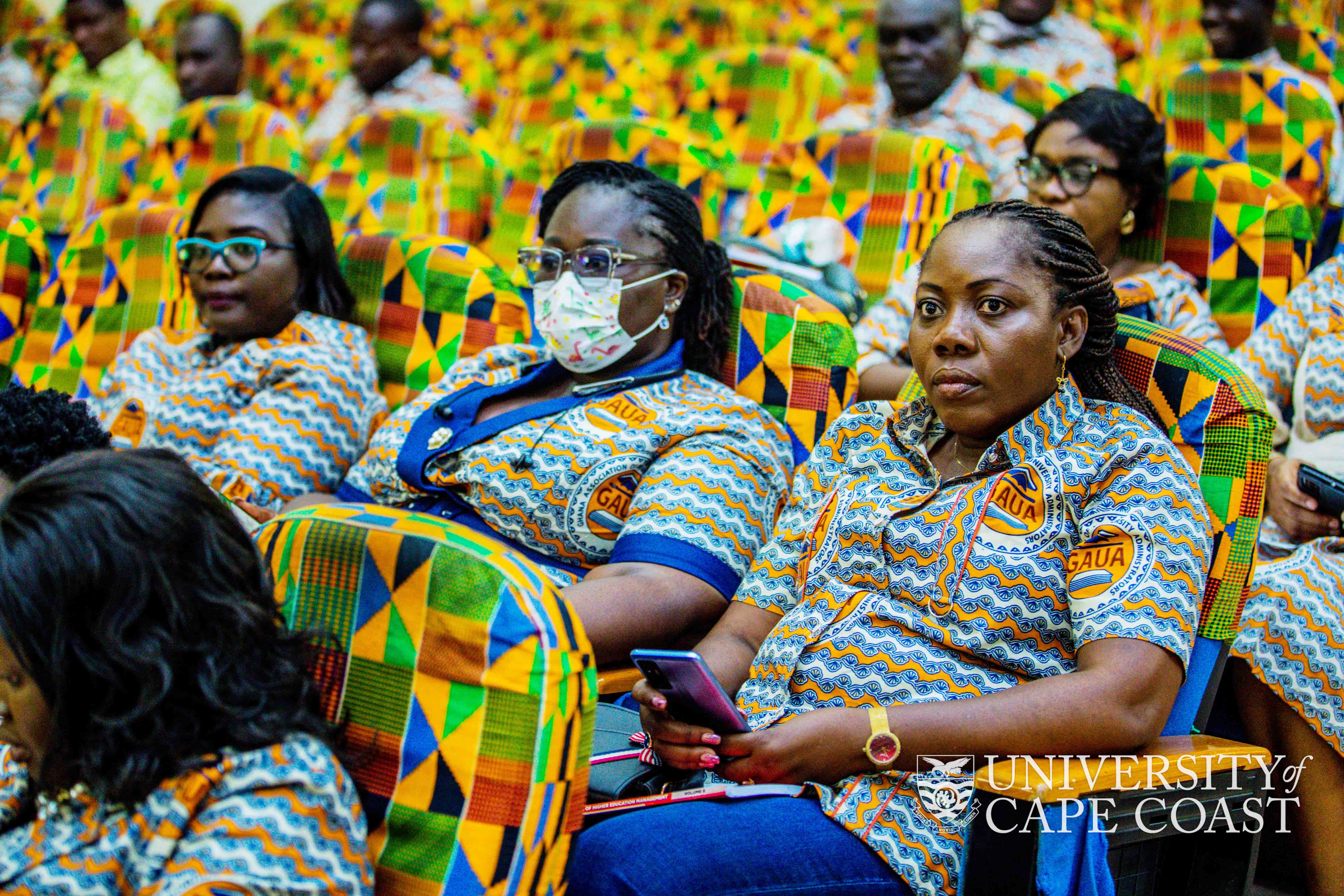Researchers, academia and practitioners from fifteen (15) sub-Saharan countries have met and discussed interdisciplinary and collaborative learning on sustainable mobility at the University of Cape Coast, UCC.
The programme, jointly organized by the University of Kassel, Germany and UCC, aimed at building the capacities of participants in order to help transform mobility in their respective countries.
It provided an opportunity for young researchers from sub-Saharan Africa to discuss their research areas, challenges and ideas as well as to strengthen their methodological and practical skills.
The MoveOn Summer School is funded by the Volkswagen Foundation, Germany.
Addressing the gathering, a Senior Lecturer and Transport Geographer at the Department of Geography and Regional Planning, UCC, Dr. Regina Amoako-Sakyi, said there were numerous laws governing mobility issues in the country.
Dr. Regina Amoako-Sakyi, senior Lecturer and Transport Geographer at the Department of Geography and Regional Planning, UCC.
“Policy is good but we need force. Another thing we also want to do is to have the education reach the drivers and pedestrians on safety precautions on the road… even the design of our road only makes room for vehicles and vehicle drivers. But we know that we have multi-users. So how are we actually making our roads friendlier?” she added.
Dr. Amoako-Sakyi mentioned environmental impacts, human safety, accessibility and affordability as some of the problems with global mobility. She called for effective measures to help mitigate global warming with issues that come with transportation.
“We all know what we are facing with the current global warming and transportation has a lot to do with it. And so our effort is to bring up people ready with a solution” said the Senior Lecturer.
A professor of Sustainable Mobility at the University of Kassel, Germany, Angela Francke, called for effective collaborations amongst universities to find solutions to mobility challenges. She urged participants to develop sustainable mobility options, including walking and cycling.
The Summer School started on October 9 and ended on October 15.
Source: Documentation and Information Section-UCC


